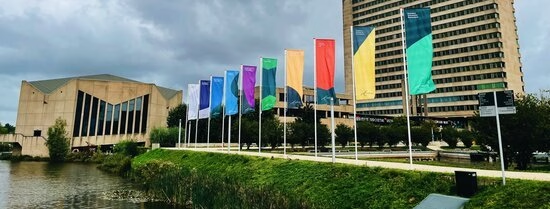Academic staff should be able to plan their own career: do I want to focus on education, impact, leadership, research or patient care (Erasmus MC)? This is one of the points that are central to the new system of Recognition & Rewards.
In short, universities are going to assess academic staff in a new way. The aim is to achieve the highest possible level of quality within all parts of the university. Prof. Peter Roosenboom, RSM's Dean of faculty, is a great advocate of the new system: "At our faculty, the goal is for people to be able to focus on the area they are good at."
Make a career in the field of your choice

Peter Roosenboom, Professor of Entrepreneurial Finance and Private Equity, has been Dean of Faculty of Rotterdam School of Management, Erasmus University (RSM) since 1 January. In this role he is also responsible for strategic HR policy and faculty development. As a result, he is closely involved in the subject of Recognition & Rewards.
"Recognising and appreciating are two strongly related subjects: first you have to recognise the contribution that someone makes and then you have to appreciate and value that contribution. These can be individual achievements but also contributions to the greater whole, for example in a team. In the past, we have focused one-sidedly on the individual and individual performance. In that sense, we have set up career paths in a classical sense whereby research is one of the most important, if not the most important, factor in determining whether someone can subsequently make steps in their career."
With the new system of Recognition & Rewards, it should also be possible for academics to make careers in the areas of teaching, research, leadership and impact. "You could imagine, for example, that someone might want to focus on teaching during their career and then build a career along that line. While someone else might have more talent for developing themselves as a director or manager, for example. By broadening out here, we want to make multiple career paths possible and to better recognise and value the different contributions."

How does this work at RSM?
Rotterdam School of Management, Erasmus University has been busy for some time now looking at how to give shape to the new Recognition & Rewards. A report was published last year. One of the most important proposals was to give shape to the non-linear career path that everyone can design for themselves on the basis of their own talents and preferences.
"At RSM we currently work on the basis of a so-called 'Tenure Track', which means that you start with us as an assistant professor and have to develop yourself on the basis of a number of basic qualifications, particularly in the areas of teaching and research. The moment someone obtains these qualifications, and is promoted to associate professor, we also see the possibility of placing different emphases and perhaps also of achieving a different balance in the various activities that you then do."
Deployment phase
Within RSM, the report, the so-called Faculty Grid, is the first step towards a new system of Recognition & Rewards. This system pays attention to the personal preferences of the academic staff. The next challenge lies in its implementation.
"In addition to the non-linear career paths, we would like to value teamwork more. We are also broadening the way in which we measure the quality of education. Traditionally, this is done on the basis of student evaluations, but here too, we are looking at how we can broaden this and how we can give wider recognition to the quality of the person as a teacher. For example, by having this evaluated by an expert or by asking a colleague to attend a lecture and provide feedback. Recognising and developing teaching talent, that is also something we are working on at the moment."
A challenge for the entire academic world
With the actual application of the new Recognition & Rewards system, a whole new challenge lies ahead, not only for RSM but for the entire academic world. "It also has to do with inclusiveness. People with different profiles must also feel at home, recognised and appreciated. It also has to do with culture. How do we see things, how do we treat each other? These are, of course, things that are much more difficult to control and they present a number of challenges for all of us."
- Professor
- Related content

